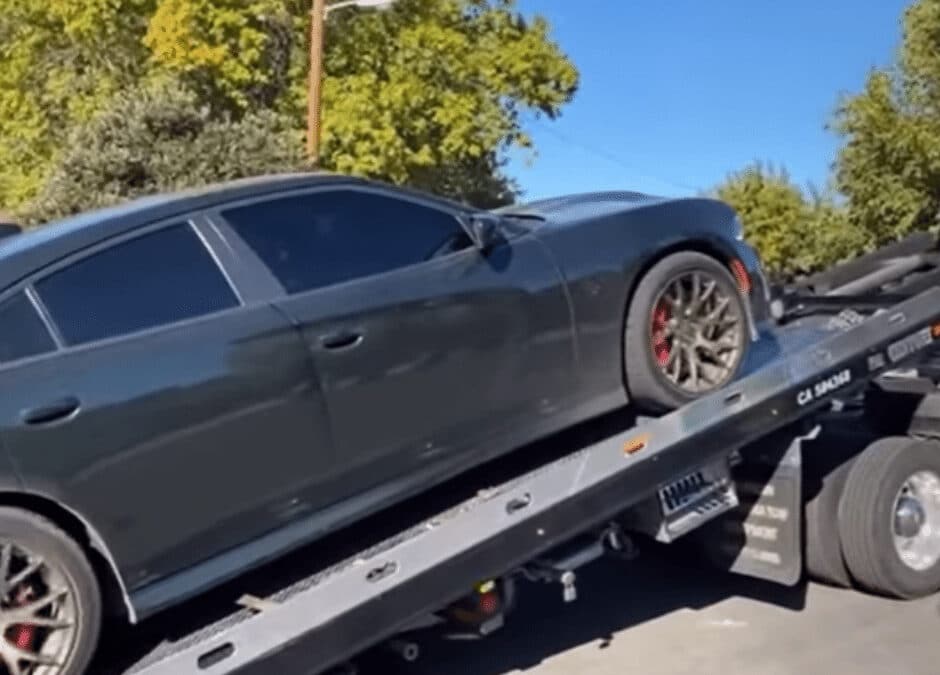Panic and worry will undoubtedly creep in if you walk out of a location only to discover that your automobile has vanished. If you have verified that it was not stolen, you may have been in violation of a city parking ordinance, which resulted in it being impounded. More than likely, the business where the automobile was towed will be able to offer contact information for the tow company. If it can’t, there are a few options for rapidly locating your vehicle.
But first, let’s explain why a car would be towed.
The reasons for towing an automobile vary by city. Here are some of the most prevalent causes:
- You are obstructing a fire hydrant. It is unlawful in every state in the United States to obstruct a fire hydrant that may be required quickly in the case of a fire. Although each state has its own regulations about how far you must be from the hydrant, it is generally 15 or 20 feet in either direction.
- You are impeding traffic. Perhaps you didn’t pull far enough into a parking place, and the rear end of your car is in the lane, or you’re double-parked outside a business. The cops will want your automobile relocated as soon as possible in order to re-establish traffic flow.
- You are parked in a disabled space without permission, or you are blocking a disability ramp or other access point. Although rules governing access for individuals with disabilities differ from state to state, it is generally prohibited to obstruct any handicap access point.
- Your car is thought to have been abandoned. If you are leaving your car for an extended period of time, such as while going on vacation, it is preferable to park it off the street or in a dedicated parking garage or lot. Simply parking it in a public lot or on the street may give authorities the impression that it has been abandoned and must be towed.
- Your registration is out of current, or your license plates are not correctly attached to your vehicle. Any evident infraction to police or other traffic officials may result in you being towed.
- Parking in a designated “no parking” or “tow zone” location. This is a no-brainer; if you park in an area plainly posted as prohibited parking, you risk being towed.
- Unpaid parking tickets or moving offenses A police officer has the authority to verify your license plates against the DMV system for infractions. That stack of unpaid parking tickets on your desk might result in a tow to the city lot.
It may be both startling and upsetting to discover that your car has vanished. You could assume you parked someplace else at first, but then you find your car was towed.
Here’s what you should do.:
Look for tow zones and warning signs
Look for signs indicating limited parking, tow zones, and other restrictions in the area where you parked. Take photos of the placards, especially if you feel you were hauled for no cause.
If you notice “No Parking” signs with a phone number, call it to find out where your towed automobile is. If this is not the case, contact the local police department. If your automobile has been towed, the towing company will provide you with information about the vehicle’s location, such as the impound lot address.
Determine which papers are required.
Towing and impound information is frequently available on city websites. Check ahead of time to see what you’ll need to bring.
In most cases, you must be the registered owner and provide a valid driver’s license, insurance, and registration to get the automobile back.
Check to see who may lawfully obtain the vehicle. In New York City, for example, you must be the registered owner, the owner’s spouse, or an “approved representative.” To become an authorized agent, you will most likely need to provide further documentation, such as a notarized declaration from the automobile owner.
Get the right payment
Once you’ve determined the location of your vehicle, you’ll want to know how much it will cost to recover it. If you were hauled due to outstanding tickets, you may have to pay those before you can consider the towing expenses. These vary considerably depending on where you live, and are often greater in major cities. Some charge extra for larger cars, such as trucks, and prices vary depending on whether you pay in cash or by credit card (checks are generally not accepted).
For example, in Los Angeles, the following fees are levied on automobiles:
- First hour of storage: $137 (paid by credit card; cash is somewhat cheaper).
- Each additional half-hour costs $68.
- The daily storage fee is $42.50.
- Mileage is charged at a rate of $7.50 per mile.
- The release cost is $115.
- 10% parking surcharge
- There may be additional fees, such as a boot removal cost.
How to Avoid Having to Tow Your Car in the Future
I’m prepared to wager that many outstanding drivers have encountered a towing issue at some point in their careers, because we all make mistakes. There are, however, a few things you may take to avoid being towed in the future.
- First and foremost, pay attention to your surroundings. When parking anywhere other than your own driveway, spend a moment after getting out of the car to make sure there are no tow zone signs, no parking signs, and no fire hydrants within 15-20 feet of your car. Even if a sign is partially hidden by shrubs or trees, you may still be subject to a tow — but if that’s the case, photograph the obscured signs so you have documentation if you decide to fight the ticket.
- Maintain meticulous records of your vehicle’s papers, particularly your license and registration. Check that your yearly inspection is completed on time and that the sticker is correctly displayed in your front window.
- Check your automobile on a regular basis to verify that your license plates are not hung by a bolt or hidden in any manner.
- Even if you’re only going inside a business for a few minutes, never park in a disabled place unless you have a disability tag.
- When you go on vacation, store your car in your garage and have someone take you to the airport, or park in long-term parking at the airport or train station. Never leave your automobile alone for days in a public lot that isn’t meant for long-term storage, such as a grocery shop or mall lot.
- Even if you’re in a financial bind, it’s good to pay your parking fines or moving infractions as soon as possible, even if it involves borrowing money from a friend or family member. The penalties of failing to pay them on time might be severe.
Now, keep in mind that this is only a guide, and towing rules, regulations, and practices may vary based on your state or area. As a result, you should make contact with the appropriate authorities to learn about the specifics of towing procedures in your area, especially if your car was towed for reasons other than parking in a restricted parking spot, such as unpaid penalties.


For more safety and no shaking, it is better to buy the coilover parts https://onefastshop.com/collections/coilovers-1. They are of the best quality from us!